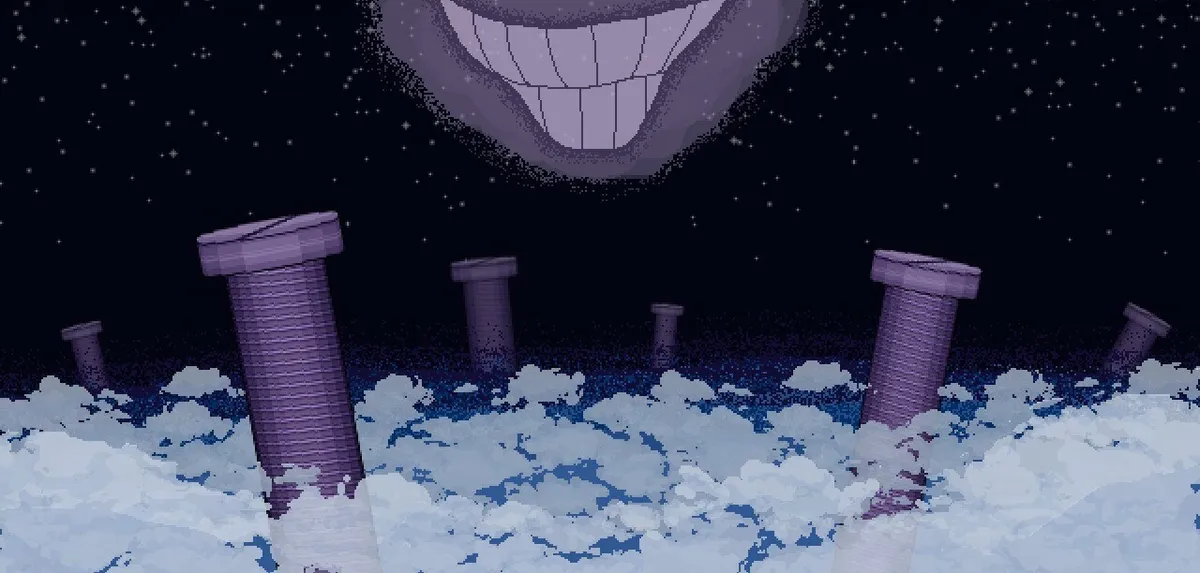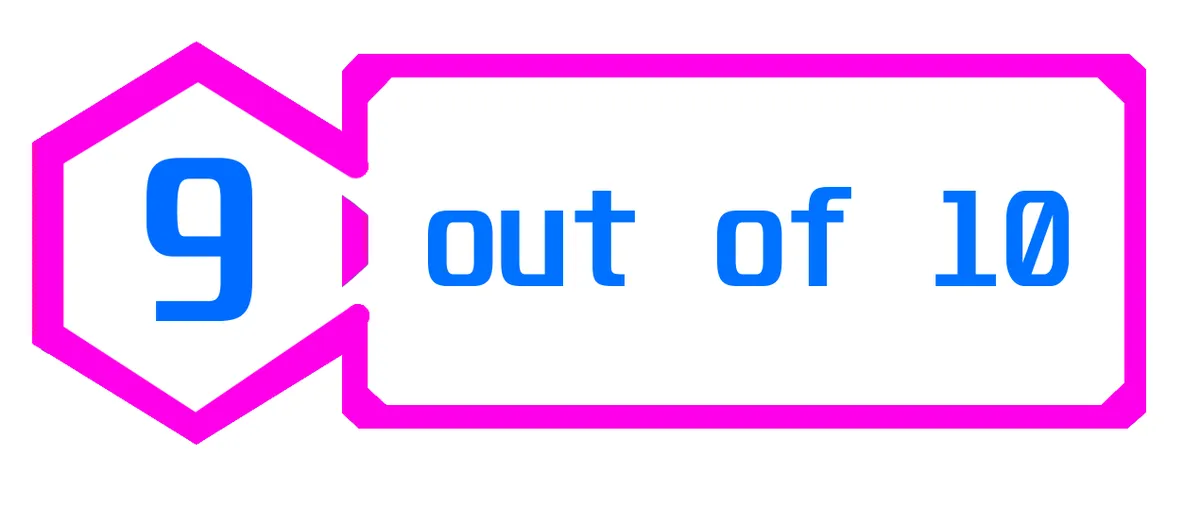Atlas Wept REVIEW – hope, at the end of the world
Rhianne Ward

Note: this post has been transferred over from my old Wordpress blog. I could go through the trouble of reformatting everything with supporting images and italicisation and whatever else, but I don't really have time to do all that unfortunately, and I'd prefer to spend my time writing new things than labouring over the old. So, if anything looks a little weird or messy, that's why. I hope you enjoy it regardless!
Cynicism is a plague that’s infected video games for a while now, but this year in particular, the imposing presence of corporate interest has been awfully apparent. With thousands of layoffs across dozens of big (and even mid-sized) game studios, the industry bubble is closer than ever to bursting, and it’s bringing down the livelihoods and wellbeing of talented artists with it. It’s easy to despair at the state of things right now, as games become more and more akin to mediocre fast food service rather than the incredible works of art they ought to be. But then you play a game like Atlas Wept, and you realise that there is light at the end of this tunnel.
Atlas Wept is a solo-developed RPG that takes heavy influence from the Mother series, among other similar retro titles. The usual routine applies; kids go on a journey, encountering many colourful characters, maybe picking up some new friends, and maybe they’ll learn a little something about themselves along the way. Also, they kill a god, because obviously! The main narrative hook of the game is the fact that there is two of them happening concurrently, following two different casts of characters, and a lot of the fun of this story is in trying to ascertain how they will connect. Credit where it’s due, it does not go the direction I’d originally expected.
But there is an awful lot of credit due to Atlas Wept. It’s not a long game, especially by JRPG standards, but what it accomplishes in the time it has is a complex, surprising tale of kindness, identity and self-actualisation, set within the backdrop of a dying world. A lot of the setups in this game are eventually left behind in favour of the true narrative hiding behind it all. There’s a clear intent to every beat of this story that never once falls victim to distraction or insecurity. It presents itself with such uncompromised confidence. Atlas Wept knows what it wants to be, and commits to it, and I love it for that, subtlety be damned!
The road getting through its journey is naturally paved by its gameplay, and Atlas Wept succeeds in this regard as well. The combat will be familiar to any acquaintance of retro JRPGs. Battles are turn-based, but also include the bullet-hell mechanics of Undertale, allowing for an element of skill that goes beyond straightforward strategy. These segments are often quite difficult and you’ll rarely avoid all incoming attacks, but the trade-off is that most of your health will regenerate at the end of a fight, meaning the goal is always to simply survive rather than perfect each turn.
The game also has a system wherein your health won’t disappear right away, but will instead tick down over time and you can regain it quite easily so long as you’re observant. It’s quite a forgiving system, but against the right (or, more accurately, wrong) opponent, these systems can coalesce into some really tense encounters. Boss fights especially had me on my toes regularly. It’s not enough to simply hit an enemy ’til it dies; you need to be thinking about your moves and changing up strategies on the fly if you want to succeed.
Atlas Wept also makes use of a stagger system, which adds an additional element to combat that I found really enjoyable. Oftentimes at the beginning of a fight, you’ll be doing very little damage to an enemy’s health bar, but you will be adding substantially to its stagger meter. Fill that meter completely and the enemy will be stunned, making it unable to attack and opening it up to maximum damage. That’s where the fight is won or lost, and it’s always incredibly satisfying to hit that part of any fight. There’s also a timing minigame element to attacks, where you can inflict extra damage if you’re able to press the input button in time with the on-screen visual. There’s nothing quite like the tension of knowing you need to get that extra damage to trigger the stun and nailing the genuinely quite tricky timing. It’s really fun!
The word that comes to mind when I think about the combat of Atlas Wept, it would be perseverance. Like I said earlier, you are regularly confronted by attacks which will likely hit you, even if you’re really good at the game. I’m sure there’s a hypothetical perfect run that is possible in this game, but in my experience, enduring pain is an inevitability. Similarly, your initial attacks often feel pathetic and useless, like you’re shooting peas out of a straw. But then, refusing to give in, you find an opening – a chink in the enemy’s proverbial armour – and suddenly the situation becomes easier. Atlas Wept wants you to keep trying until you succeed because it knows, and wants you to know, that you can.
However, unlike other games which strive for this feeling by having you die a lot and leane from your failures, Atlas Wept insists that you go through the process of defeating enemies in more or less the same way each time with slight variations. This sounds like a critique, but it really isn’t. This loop instilled in me a feeling that I often experience doing my laundry or cooking dinner; these little battles in between the larger, life-defining moments never go away. They will persist and you will have to hop those hurdles every time, and that can be frustrating and monotonous at times, but ultimately preferable to the alternative, which is meeting life’s challenges without the proper preparation. This is a reading I wouldn’t normally afford a game with this kind of “problem”, but the experience lends itself so perfectly to Atlas Wept’s entire identity that I can’t help but appreciate it.
So what even is the point of Atlas Wept? Definitely a reductive question – the point of art is simply whatever you get out of it, after all – but this game at the very least has something clear and unambiguous to say. Its message spans multiple timelines and it somehow never buckles under its own self-imposed weight. The intrigue that arises from trying to figure out why these narratives are being told concurrently is really compelling, which only works because it’s so easy to care about these characters and wish to see their stories through to the end. They aren’t terribly unique individuals. All our protagonists fulfil some kind of familiar archetype, but they remain likeable and easy to sympathise with, and that lays the proper groundwork for the overarching themes to land with the impact they desire.
Something I wasn’t exactly expecting, but was pleasantly surprised by, was Atlas Wept’s queer representation, which is pretty stellar across the board. For one, a major party member is explicitly trans, and one of the protagonists – a girl – is also unambiguously gay. Perhaps because this is an indie game, these things aren’t that exciting in the grand scheme of games, but to do it within the framework of a retro-inspired RPG felt pretty special to me.
JRPGs have a habit of tackling themes of anti-authority and self-actualisation. The Persona games spring to mind right away, but this is true for Final Fantasy, Chrono Trigger, and other games like it as well. However, despite presenting this golden opportunity for engaging in conversations of queerness and identity, these subjects are often forgotten or handled poorly, given that they are typically written by cishet men with limited to no understanding of the community or the lived experience. Big budget JRPGs are now much better in this regard – FFXVI has a gay supporting character with importance to the story, Fire Emblem‘s recent titles have allowed for queer romance options, and 13 Sentinels (not really an RPG but give me this) has a male protagonist who enters a relationship with an out non-binary character – but in many ways, there is still room for some improvement.
The main issue, I find, is that there simply isn’t enough queer creators in the room making these narrative decisions, because the people making those decisions are typically older and will consolidate that power with the people whose worldview aligns with theirs. A tale as old as time, unfortunately. Of course, the passage of time will gradually make these attitudes obsolete as queerness becomes more and more normalised within society, but for now, it is often the indie scene which fills this void.
It makes me feel foolish for waiting on hands and knees for the next big release to potentially have a little gay as a treat, only to inevitably be disappointed by the result, because there are countless incredible, creative people making games and telling stories in their bedrooms who are capable of portraying queerness with the empathy and care only lived experience can provide. Supporting voices like that is an important part of seeing more LGBTQ+ stories in the future, but those stories will also always exist if you know where to look.
Atlas Wept’s portrayal of queerness – specifically transness – is at the core of its storytelling. It is a game about defying fate and embracing what makes us human, including all the bad stuff, because with that comes beauty and joy and wonder and everything in between. It’s a game about how the simplest solution is often not the best one, especially if the easy route is one in which you must deny yourself any happiness to just get along. Atlas Wept interrogates why things are the way that they are, because oftentimes what it is isn’t what it should be. No authority – not even gods – should ever have the right to compel your way of life, because to do so would be robbing you of the magic of being alive and experiencing your own journey of self discovery.
In truth, Atlas Wept doesn’t achieve anything particularly groundbreaking. Its building blocks are solid and straightforward, and its construction sound, but that’s all it needs when what it sometimes lacks in fresh ideas, it more than makes up for with an unwavering earnestness. It’s the kind of game that reminds you of the human beings behind the screens that create the art we love to enjoy, and in that sense, I wouldn’t have Atlas Wept any other way. It is pure heart, and by being its own complicated self, it is perfect just the way it is.
